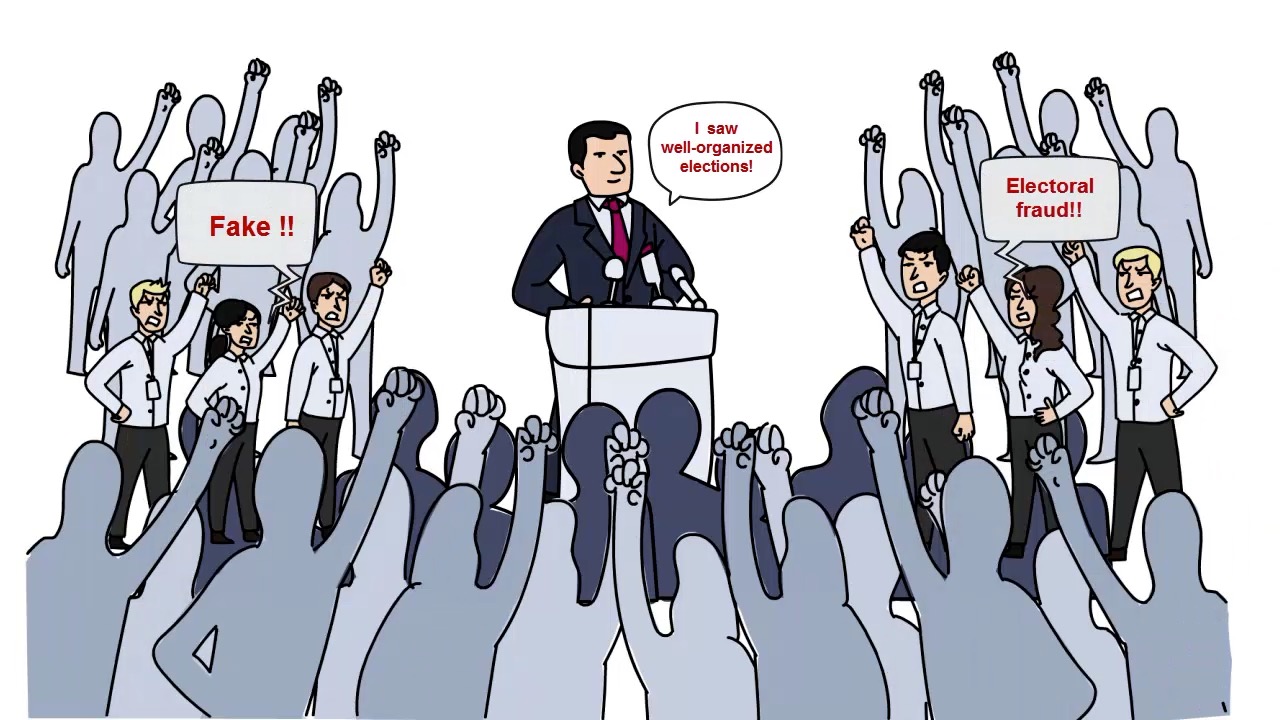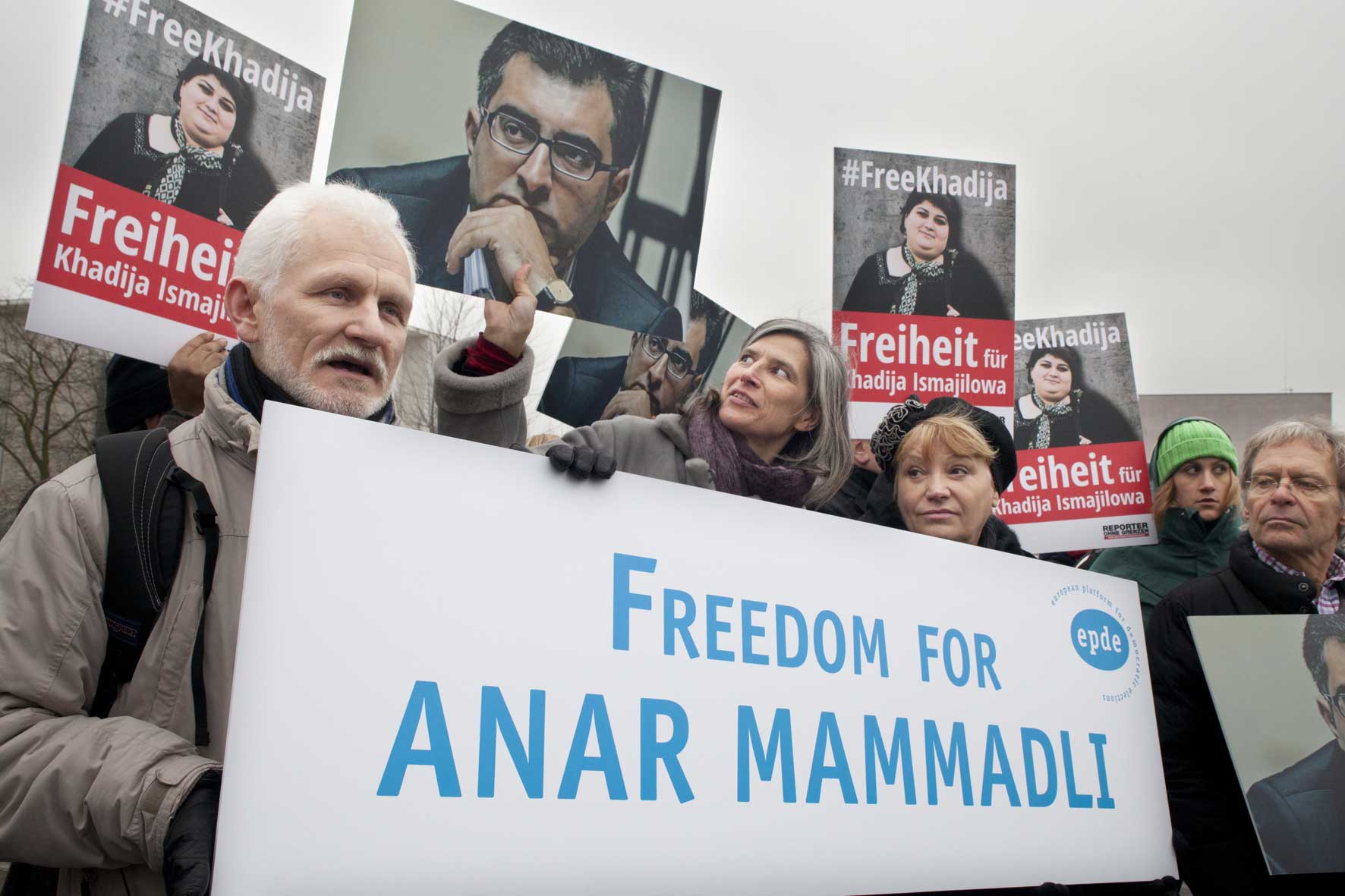Regional Network's Special Report: EPDE’s Contribution to the Integrity of Elections and Election Observation

Electoral integrity is at stake in a series of states in the European Union’s wider “Eastern Neighborhood”. Domestic election observation organizations play a crucial role in guaranteeing the integrity of elections by monitoring all stages of the electoral cycle and by providing recommendations for democratic electoral reforms.
In recent years, there have been attempts by politically biased election observers to discredit findings of established international and domestic observers and to whitewash fraudulent elections in the region. At the same time, there has been an increasing pressure on independent citizen observers by authorities who ignored their appeals to reform election processes according to international democratic standards.
Since its establishment in 2012, the European Platform for Democratic Elections (EPDE), a GNDEM regional network of 14 citizen election observation organizations working in the EU’s Eastern Partnership countries and the Russian Federation, supports citizen election observers in their advocacy efforts to safeguard democratic elections and to preserve the institution of independent domestic election monitoring. EPDE supports the collaboration between domestic citizen observers and established international election observation institutions, such as ODIHR-OSCE and the Council of Europe, to guarantee that transparency and highest methodological standards are applied to support democratic elections in the region.
Over the past 1.5 years, the EPDE has developed an “Electoral Integrity Database”. The goal of the database is to provide EPDE members with a unique and powerful tool to track democratic electoral reforms in their countries and to reveal mechanisms which endanger democratic processes in the region. This database will also promote domestic election experts’ recommendations that seek to strengthen democratic electoral reforms and improve electoral integrity, while denouncing messages of politically biased election observers who discredit findings of established election observation missions and whitewash fraudulent elections or legitimize illegitimate elections.
The database, which is accessible through EPDE’s website, consists of two main sections: a) Catalogue of Recommendations on Electoral Reform and b) Database of Politically Biased Election Observers.
The database is intended to be used by election experts and observers as a researchable archive and information source on electoral reform recommendations that have been issued over the last decade. For journalists and decision makers, this database is a valuable tool that can facilitate research on international actors, often members of parliaments and other prominent institutions, who misuse the institution of international observation for their own political interests and interests of authorities who want to cover-up electoral fraud. This database should bring these two issues – recommendations on democratic election reforms and findings on politically biased election observation – to the attention of democratic societies and relevant national and international decision makers.
Catalogue of Recommendations on Electoral Reform
In line with an electoral cycle approach and in recognition of the fact that elections are not a one-day event, citizen election observation organizations strive to remain involved and to contribute to post-electoral review and reform processes by actively engaging in follow-up activities, working with authorities on the implementation of recommendations and advocating for reforms through different collaborative formats. To support citizen observer organizations’ efforts in tracking the implementation of recommendations, EPDE developed this open source multi-country online catalogue. To date, the database contains over 490 recommendations pertaining to elections held between 2012 and 2018 in the region, with updates for 2019 and 2020 to follow soon, and assesses the implementation of recommendations related to the most recent elections.
Based on data gathered in this database, EPDE is publishing a series of comparative reports on the status of implementation of election-related recommendations in the Eastern Partnership countries and the Russian Federation. The first reports examine the existing legal conditions for domestic election observation in the region. This comparative analysis, for example, argues that Russia ranks the worst regarding conditions for citizen election observers in the region. Other comparative analyses will follow on recommendations regarding election campaign financing and freedom of expression.
The database, which was developed with expert Tatyana Hilscher-Bogussevich, aims to strengthen advocacy capacities of citizen election observers by providing comparative insight into electoral reform processes. The database helps to highlight recurring issues or common themes in the target countries. This will contribute to better transparency and an exchange of best practices in advocacy efforts between citizen election observers in the European neighborhood region.
Database of Politically Biased Election Observers
This database’s purpose is to provide unbiased and regularly updated information for researchers, journalists, and politicians on the systematic misuse of the instrument of election observation by politically biased actors. EPDE reports have received significant media attention and have contributed to raise political awareness for this subject.
To bring this subject even more into the public and decision makers’ eye, EPDE made a short, animated film to explain fake election observation in a playful and simple manner.

The database was based on reports of Anton Shekhovtsov who has researched politically motivated election observation worldwide, yet with a particular focus on how this has been used as a Russian means to meddle in international elections. Shekhovtsov shows how politically biased observers legitimize fraudulent elections both in Russia itself and in other states of the region, where autocratic regimes try to legitimize illegitimate elections.
EPDE’s Impact on the Democratization of Election Processes
The presidential elections in Azerbaijan in 2013 were marked by grave irregularities of the election process and by an unprecedented high number of politically motivated election observation missions. Among those praising and whitewashing these fraudulent elections were such respected institutions as the European Parliament and the Parliamentary Assembly of the Council of Europe. Independent and unbiased election observers, such as EPDE member Election Monitoring and Democracy Studies Center (EMDS), were marginalized by the Azerbaijani authorities and media, and their chair, Anar Mammadli, was sentenced to 5,5 years in prison. EPDE initiated an international advocacy campaign for the release of Anar Mammadli and for the investigation of politically motivated international election observation missions.

EPDE organized round table discussions in the European Parliament, the Council of Europe, and the German Bundestag; and started to conduct regular research on the international networks participating in politically motivated election observation. Doing that Through these discussions and research, EPDE learned that there was a core group of often right or left wing politicians of several European parliaments (national and regional ones) accepting invitations from authoritarian states or their NGO proxies to participate in election observation missions with the aim to justify election fraud and to discredit independent and critical monitors. In 2018, EPDE contributed to the investigation of internal corruption in the Council of Europe which was closely linked to politically motivated and externally financed election observation among the PACE. This campaign was successful, resulting in a change of the Code of Conduct of the PACE and the sanctioning of several PACE politicians involved in the corruption scheme. EPDE now continues these efforts to raise awareness for the importance of clear control and sanction mechanisms also within European national and regional parliaments.
Through the launch of this open source database EPDE builds on this previous success and intends to increase public awareness of the efforts of independent citizen election monitors and of the misuse of the instrument of international election observation for political interests. EPDE encourages parliaments to improve their Codes of Conduct and to include smart sanction mechanisms for those parliamentarians who misuse their office by participating in politically motivated election observation.
Contact:
Kira Moessinger
 GNDEM
GNDEM